Understanding Blackjack Odds – Probability, Payouts and the House Edge Explained
Few casino games are as well-known, well-loved, and easy to play as blackjack. It is played in many formats. Whether you play with live dealers at land-based venues or online casino sites or prefer a computer-powered table game, understanding blackjack odds is essential. It will help you create a game plan that not only makes it more exciting but also helps you make smarter choices. This, in turn, can help lead to more lucrative payouts.
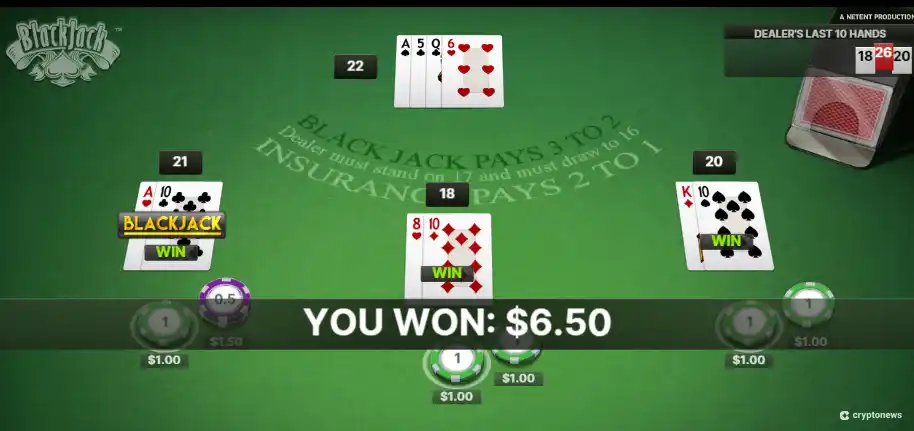
Our guide will introduce all you need to know about blackjack probability. It doesn’t matter whether you are a beginner or a player looking for more strategies and understanding to help enhance your game; we’ve got useful information for players at every level.
An Overview of Blackjack Odds
One of the reasons for the continued popularity of blackjack games is its easy-to-follow rules. Understanding the basics of how to trigger a win in blackjack will make it easier to grasp and know how the odds and probabilities of the game work. Therefore, before discussing odds and probabilities in our article, we want to share some of the basics with you:
- The primary aim of the game is to get a better result than the dealer.
- If you hit a 21 on the first two cards you received from the dealer, also known as “blackjack,” it is an automatic win.
- If you exceed 21, then you go bust, and you will lose your stake.
- The cards from 2 to 10 hold their face value.
- The face cards like the King, Queen, and Jack will all hold a value of 10.
- An Ace is a flexible card that can count as a 1 or an 11, whichever number best helps you achieve blackjack.
Odds for the Player in Blackjack
Understanding the probability of blackjack and how it affects the odds is vital in helping you identify when you have an advantage or when it is time to fold.
It can also help you to minimize any potential losses on your hands or help you maximize your winning potential. In our table below, you can see the examples in the blackjack probability chart if you have received two cards and chosen to hit.
| Hand Value Of Player | Blackjack Probability of Going Bust |
| 11 or lowers | 0% |
| 12 | 31% |
| 13 | 39% |
| 14 | 56% |
| 15 | 58% |
| 16 | 62% |
| 17 | 69% |
| 18 | 77% |
| 19 | 85% |
| 20 | 92% |
| 21 | 100% |
Dealer’s Probability in Blackjack
As with most casino games, the blackjack house edge means the dealer has a higher probability of winning than you. It also helps that they go second and base their decisions on your or another player’s current hand.
The rules for when the dealer must hit or stand can differ depending on where you play. In some cases, the dealer must always stand once they have a hand, totaling 17. In others, the dealer may continue to play if they have a “soft” 17 (a hand which contains an Ace and can total 7 or 17). The table below shows you the likelihood of the dealer going bust based on their face-up card and how it varies depending on the house rules.
| Dealer’s Up Card | Probability when standing on soft 17 | Probability when hitting on soft 17 |
| Ace | 18% | 20% |
| 2 | 35% | 36% |
| 3 | 37% | 38% |
| 4 | 40% | 40% |
| 5 | 42% | 42% |
| 6 | 42% | 44% |
| 7 | 26% | 26% |
| 8 | 24% | 24% |
| 9 | 23% | 23% |
| 10 | 23% | 23% |
Winning Chances in Blackjack Explained
Blackjack odds will fluctuate depending on the player and dealer rules of the variant you play. It is handy to understand how it works and, with some practice, know when it is best to hit or when to stand. This will improve your odds and, therefore, your winning chances.
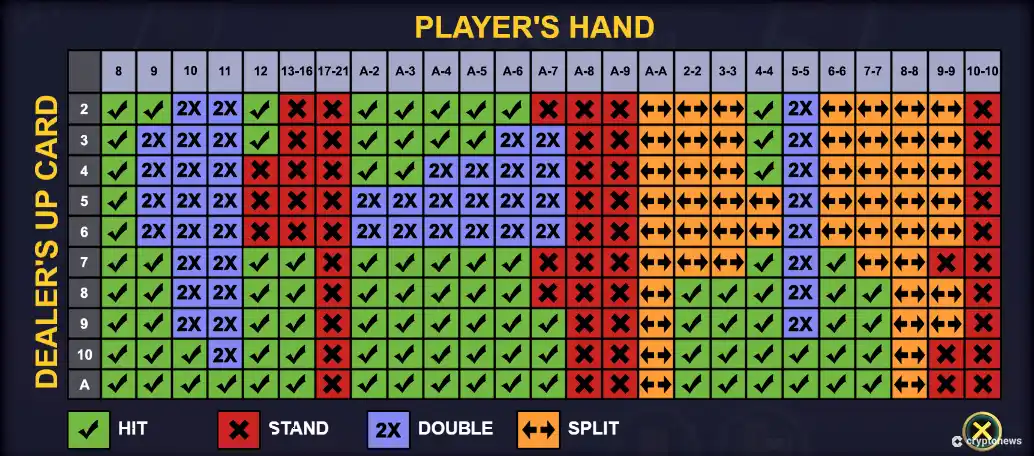
Probability in Blackjack Games
When playing with a single deck, the probability of a blackjack stands at 32/663, or 4.83%. It averages about 1 in every 20 hands.
However, this changes if the single deck does not get reset after every hand. For example, if three hands are dealt with no Ace or any face cards, the probability rises depending on the cards that have been removed from the deck.
If you play blackjack online, the RNG (Random Number Generator) means you will always get dealt from a 52-card deck, and the probability remains at 4.83%. If you play a multi-deck blackjack version, the probability will decrease, but not by much. With two decks, it drops to 4.78%, while a six-deck game is only slightly less at 4.75%.
Our table below shows you how the probability is affected by the number of decks used; as you can see, the probability doesn’t alter very significantly.
| Number of decks | Probability |
| 1 | 4.827% |
| 2 | 4.78% |
| 3 | 4.764 |
| 4 | 4.757% |
| 5 | 4.752% |
| 6 | 4.749% |
| 100 | 4.735% |
Understanding Odds in Blackjack Games
The winning odds in blackjack can go as high as 42.22%. However, this percentage does not mean that the house edge is 57.78%, as a tie (or push) is also possible. On average, 8.48% of all blackjack games will end in a push, leaving your loss probability at 49.10%.
When considering the odds of winning, you must also consider the randomness of any casino game. Thus, winning blackjack odds have been calculated over many hands and games over an extended period to gain accurate results. The RTP (Return to Player) is your expected return versus the house edge. The higher the RTP, the less the house edge, and therefore, the more in favor of the player the game is.
Calculating Your Winning Odds in Blackjack
Various factors influence your odds. The dealer-up card is the first. If it shows a six or lower, the blackjack house odds are somewhat lower, as the dealer will have a more substantial chance of busting. Using a basic strategy to incorporate the dealer’s up card and your decisions will help you achieve the best results. You can use a more advanced strategy when playing blackjack – our guide on how to count cards will help in that case.
Knowing the probability of drawing a card or combination helps to calculate the odds. For example, the odds of drawing an Ace are 4/52 if you play a single-deck game. For more decks, the blackjack house odds will change slightly. Let us look at the table below and the probability depending on your hand value.
| Hand Value | Probability |
| 21 | 4.8% |
| 17-20 | 30% |
| 1-16 | 38.7% |
| No Bust | 26.5% |
Comparing Odds across Different Variants of Blackjack
There are many variations of blackjack to try. They may include side bets, different gameplay rules, or unique features. The differences in these games alter the odds and payouts, so let us look at what you can expect from these different games.
Traditional / American Blackjack Odds
Whether you have chosen to play online or at a land-based casino site, this is the most common version of blackjack you will find. American blackjack usually uses a standard deck of 52 cards; the win percentage is 42.22%, while your chances of hitting 21 are at 4.75%.
The average house edge is around 0.61%. This means that theoretically the house receives $0.61 for every $100 wagered.
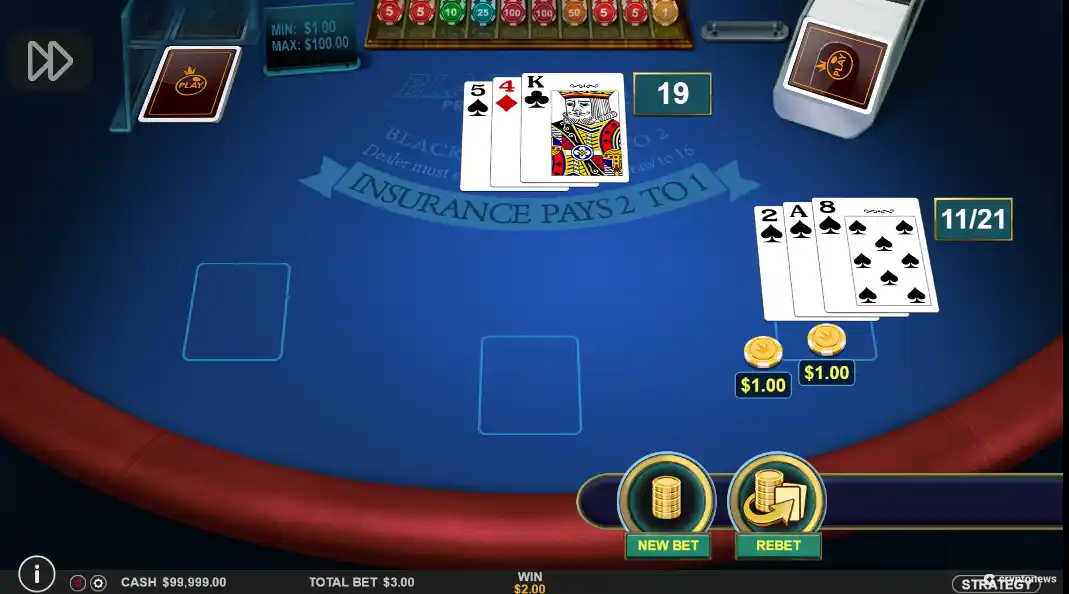
The odds on American Blackjack come in at 3/2, which is 1.5x your original wager if you win. So, if you win on a hand that you had bet $100 on, your total payout would be $250. Of that, $100 is your stake, so $250 – $100 = $150 profit.
As a general rule, the probability of getting a given hand in classic blackjack is as follows:
| Hand Value | Probability |
| 21 | 4.8% |
| 17 – 20 | 30% |
| 1 – 16 | 38.7% |
| No Bust | 26.5% |
European Style Blackjack Odds
European blackjack, although very similar to American, does have subtle differences. Instead of one pack of cards, you play with two 52-card decks. Another factor to consider in this variation is that the dealer won’t hit after a soft 17 and will wait for all the players to complete their hands before they check for blackjack.
The odds of winning blackjack on this variation are similar to classic, with a theoretical 42% chance of winning. The payout for the European version is the same as the classic at 3/2. However, it is a more profitable game in the long term, with a lower house edge of only 0.39%.
Quick Tip
A “hit” in blackjack is when you add another card to your hand to try to achieve or get closer to 21. However, if there is a strong chance of busting, it’s better to “stand”( choose not to take a new card).
The Blackjack Switch Variation Odds
Blackjack Switch is another popular variant where instead of playing with only one hand, you can play multiple hands and switch cards between them while playing. So, imagine you had two hands, one with a 4 and 11 and another with an 8 and a 10. You can swap the 8 and 4, so you end up with blackjack on one hand and 12 on the other
The winning chance of this variation is set at 42%, like American or European, but it includes a few unique rules not found in the others. One is that the blackjack game will result in a push if the dealer hits a 22. It also has a lower house edge of 0.58% and is one of the lowest around. However, it has lower payouts at 1/1, meaning you will double your money. So, if you placed a $100 bet, you would receive back $100, which is a $100 profit.
Face Up 21 Strategy Odds
Face Up 21 has all the cards face up, so you can see both your and the dealer’s hands. The winning probability is around the 42% mark, but a significant difference is that in Face Up 21, a tie won’t result in a push. Instead, it is a loss.
The house edge of this variation is 0.85%, and a win pays out at 1/1; therefore, many players who want a decent profit when playing will not consider it. However, it is an excellent option for players who want to practice new strategies.
The Dynamics of Free Bet Blackjack
This is another unique version of the game, where you can split or double down at no extra cost. You can split for free once per hand, meaning if you have two cards of the same value, you can divide them into two hands. Another option available to you is that you can choose to double your bet during play without paying anything extra, as long as you have a hard 9, 10, or 11.
It has the highest house edge of 1%, but the odds payout is at 3/2, so it evens it out slightly.
Digital Blackjack Odds: Player vs Computer
Online Blackjack is known as video or RNG blackjack. A random number generator (RNG) determines the outcome, guaranteeing fair play. There are no other players or real-life dealers, and it falls under the table game category at secure and safe online casinos.
The house edge varies quite dramatically, and you will find it anywhere from 0,5% to 2%. It all depends on the casino where you choose to play. The payouts also vary when playing online, ranging from 1/1 up to 3/2 for blackjack.
Real-Time Excitement: Live Dealer Online Blackjack Odds
If you prefer to play online but still want an authentic casino experience, live dealer versions of blackjack offer precisely that: you can experience a live blackjack game from the comfort of your home. Live dealer blackjack titles typically follow the rules and the format of the classic blackjack variation.
The house edge goes from 0,49% up to 0.72% and again is casino dependent. The odds are typically higher and usually set at 3/2.
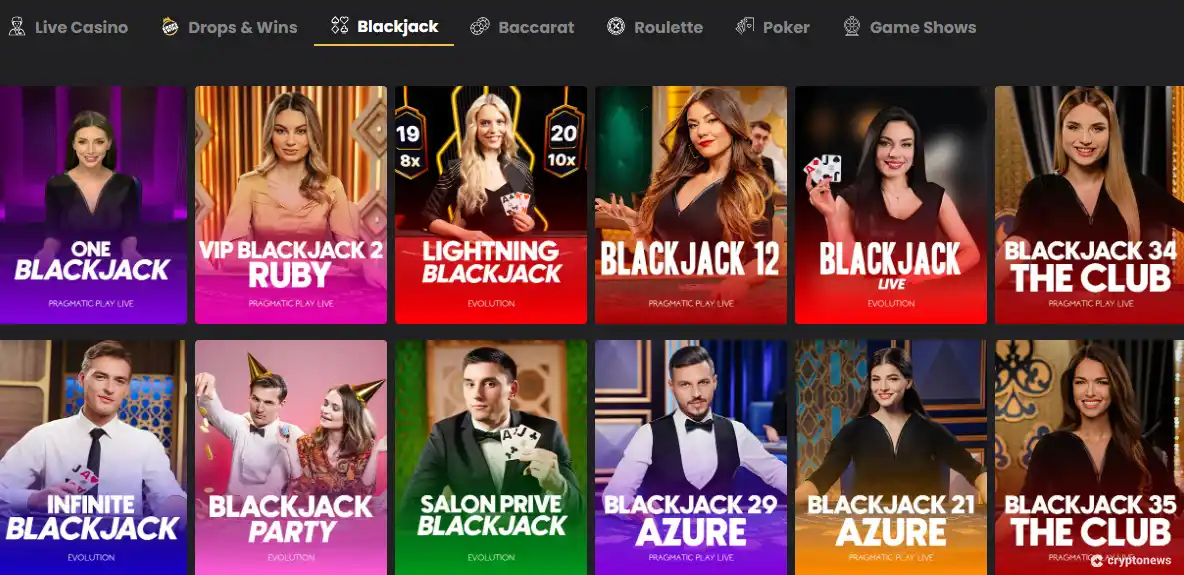
Odds Overview Across Blackjack Variants
There are many blackjack calculators online where you can work out the odds. However, we have created a handy comparison table to simplify it for you.
| Blackjack Variant | Odds | House Edge |
| Classic/American Blackjack | 3.2 | 0.61% |
| European Blackjack | 3:2 | 0.39% |
| Switch Blackjack | 1:1 | 0.58% |
| Face Up 21 | 1:1 | 0.85% |
| Free Bet Blackjack | 3:2 | 1% |
| Video Blackjack (Online) | 1:1 / 3:2 | 0.5% to 2% |
| Live Dealer (Online) | 3:2 | 0.49% to.72% |
The Likelihood of Different Blackjack Hands
As well as standard blackjack odds, you can also wager on several other bets, including side bets. The payout you receive and the blackjack odds change when these factors are implemented, so you need to understand how they work and how they affect your odds.
Betting on Insurance
A top side bet option that many players use is insurance. You will find this side bet in all variations, and what it does is it lets you protect half your wager. So if, for example, the dealer has a face-up Ace and then lands a 10 to get a blackjack, you won’t lose your entire bet.
The Option to Surrender
Some casinos will allow you to surrender if you don’t feel confident with your hand. There are two methods to go about it:
- Early Surrender: This allows you to surrender only half your bet (and keep the rest) before the dealer discovers if they have blackjack. However, it is hard to find, and many casinos won’t let you use this option.
- Late Surrender: This option allows you to surrender half of your wager after the dealer checks their cards. Unlike the early surrender, you only get to keep half your bet if the dealer does not have blackjack.
Impact of Deck Quantity on Odds
As we have already discussed, the number of decks in play in online blackjack games can vary from one to eight. The more decks in play, the less chance you have of getting blackjack. This is because aces and cards with a value of 10 are more spaced out, and the likelihood of being dealt one of each in the same hand decreases with each additional deck.
The number of decks used will also change the house edge in blackjack by 0.56% from a single-deck to an eight-deck card game, with the house edge increasing with every additional deck.
The 21+3 Side Bet
The 21+3 side bet lets you place bets on your first two cards dealt and the dealer’s face-up card. There are five different bets, based on 3-card poker hands, which you can make. We have included a table below of what they are and their odds.
| Wager Type | Bet Description | Odds |
| Flush | Three cards that are the same type or suit, such as landing all spades or all diamonds. | 5:1 |
| Straight | A straight is where you have three cards in a row, like 4, 5, and 6. | 10:1 |
| Three of a Kind | These are three cards that have the same face value, such as three queens with hearts, diamonds, or spades. | 30:1 |
| Straight Flush | This is where three cards come after each other like a straight but are all identical suits like a 4, 5, and 6 of hearts. | 40:1 |
| Suited Three of a Kind | This only applies to multi-deck games with three identical face-value cards that must have the same suit, such as three queens of hearts. | 100:1 |
As you can see from the table, the odds offered are much higher on these 21+3 side bets, but they are so high because the chances of landing one are not very high. They also have a much higher house edge, ranging from 6.29% and going up to 8.78%. It all depends on the number of decks used.
The Appeal of Perfect Pairs
This side bet works similarly to 21+3, focusing only on your cards and their combinations. There are three Perfect Pairs bets you can make:
| Bet Type | Bet Description | Odds | Probability |
| Perfect pair | Two identical cards like two sevens of diamonds | 25:1 | 1.69% |
| Colored pair | Two cards that not only have the same value but color, like the king of hearts and diamonds, which are both red | 12:1 | 1.93% |
| Mixed pair | Two cards of the same value but not a suit like a three of diamonds and three of spades. | 5:1 | 3.86% |
While the odds are also relatively high on the Perfect Pairs, the probability of them happening is very low. The house edge on these is 2% to 11%, much higher than other blackjack wagers.
The Strategy of Doubling Down
A double down is where you can increase your wager during a hand. The odds remain the same at 3/2, but you can improve your winning potential, as you will have two bets on the same result.
It’s best only to double down if you are very confident in your hand and have little risk of going bust. You should never double down if the dealer has an Ace, as they have a high chance of getting blackjack, which means you lose your bet.
The Art of Splitting Hands
Many casinos allow the option to split your hand. You will divide your two dealt cards into two hands, requiring another stake of your original bet. If the dealer has a bad hand, it can work to your advantage, but the odds remain the same at 3/2. You will receive a double payout if it wins.
In general, experienced players will always split Aces or 8s, as you have a better chance of achieving a winning blackjack hand. While splitting 10s is not advised as you risk not achieving another 20, which is already a strong hand.
Understanding 6 to 5 Blackjack Odds
The most common blackjack odds are 3/2. However, 6/5 odds are gaining traction as the new odds standard in Vegas.
3:2 odds pays out at 1.5x your initial stake
6:5 odds pays out at 1.2x your original stake
So, you are better off sticking to 3/2 odds instead of making a $150 profit on a $100 wager on the 6 to 5 odds, which is only $120 and a substantial amount of $30 less.
Understanding Blackjack Payouts
The odds of winning blackjack can vary between casinos. Although you may play the same game, the payout rate the casino has set will affect the odds of the outcome. As mentioned, the typical payout is 3/2, and the casino house edge comes in at around 0.5%.
Some casinos may offer the alternative blackjack odds of 6/5 or 1/2 (even money). The size of the casino payout influences the overall house edge in blackjack.
Detailed Payout Chart for Blackjack
Blackjack has one of the most straightforward payout systems of any casino game, with few wagers to place besides a few side bets. With the odds set at 3/2, 6/5, or 1/1, they are easy to calculate. However, calculating the casino’s house advantage is trickier, so we have compiled the blackjack payout chart for you below.
| Blackjack Payout Rate | Blackjack House Edge |
| 3:2 | 0.5% |
| 6:5 | 1.9% |
| 1:1 (even money) | 2.8% |
The House Edge in Blackjack
Every business must make a profit to survive and keep trading, and casinos are no different. As part of offering you the service to play their games, they take a commission, also known as the “house edge.” The house edge allows the casino to always maintain an advantage and continue to make a profit.
Both online casino sites and brick-and-mortar casinos use a combination of the game rules and payouts to calculate their house edge. Blackjack (and online blackjack) is one of the most popular casino games partly due to its low house edge. However, it is always essential to remember that the house edge in blackjack can vary between the games. A classic table will usually have a more favorable edge than other blackjack game variations.
Blackjack Odds vs Other Casino Games
While blackjack offers some of the best blackjack odds, it is always good to see how they compare to other popular casino game options. Our table below highlights the top casino games and the house edge.
| Casino Game | House Edge |
| Blackjack | 0.43% – 2% |
| Bingo | 2.5% – 11% |
| Baccarat | 1.06% – 1.24% |
| Single Zero Roulette Odds | 2.7% |
| Double Zero Roulette Odds | 5.3% |
| Craps | 1.36% – 1.41% |
| Ultimate Texas Hold’em | 2.20% |
| Pai Gow Poker | 2.84% |
| Video Poker | 0.05% – 2% |
| Video Keno | 8% – 15% |
| Slots | 2% – 20% + |
As you can see, the house edge between the games can vary quite dramatically, and for example, in slot machines, the house edge can be 20% or even higher, which is not good news for players. Slot games also have more features that affect the odds. Some have progressive jackpots, which lowers the odds, or those with best casino payouts may have a higher house edge to compensate for the significant wins it has to pay out to a player.
The Concept of Return to Player (RTP) in Blackjack
The first you need to know when learning how to gamble online is RTP. While the house edge is what the casino stands to make on every game, the RTP is your expected return when playing blackjack. So, while the house edge is about the casino having an advantage, the higher the RTP, the higher your theoretical returns over the long term.
If we take the example of a game with an RTP of 98%, the expected return for every $100 spent is $98, while the casino’s house edge is 2%. However, as it is an expected return, there is no guarantee that it will happen when you play. The RTP rates are calculated over millions of wagers, meaning every player will have a different experience.
Blackjack offers one of the highest RTP rates out of all casino games, up to 99.5%. However, every version will differ. You can check it if playing online inside the info tab of the game. The main principle here is to aim for higher RTP blackjack games as it increases your winning blackjack odds. So if one has a 99% RTP and the other 99.50%, always opt for the higher one as it will increase your profitably in the long run.
Conclusion
Blackjack is one of the simplest card games, and it is still a top-rated casino game played worldwide by millions of players. Part of the appeal is that you can play anywhere and anytime if you choose online casinos. At the same time, there are many variations, so it’s essential to understand the rules, the number of decks in play, and how the payout rate can affect your odds.
There are various combinations of cards you can hold, which can also affect the outcomes, and therefore, understanding the payouts, the RTP versus the house edge will all help you when choosing to play the game. As the casinos will ultimately always win in the long run, understanding how they operate puts you in a stronger position when playing at a table.
While all casino games are about luck, incorporating some newfound skills can improve your blackjack strategy and help you make calculated decisions to create more winning blackjack hands.
FAQs
What are the odds of winning in blackjack?
Your odds of winning in blackjack are 42.22%. The dealer has slightly higher odds, coming in at 49.1%. The third possible outcome is the tie; the odds are low at 8.48%.
What are the best odds at a blackjack table?
The best odds you will find when playing blackjack pay out at 3/2, which is a profit of 1.5x on your original wager. However, some casinos have payouts of even money or 6/5, which increases the casino house edge and lowers your odds.
How to win at blackjack with $100 dollars?
Understand the game rules, payouts, and house edge to win at blackjack. Next, a good strategy many players use is to only bet with 1 – 2 % of their bankroll. Therefore, use bets of $1 to $2, avoid insurance and side bets, and choose higher payout tables.
Is blackjack a game of skill or luck?
Blackjack is a blend of skill and luck. Understanding the rules, payouts, and house edge increases your knowledge and skills while, as with any casino game, a bit of luck is required. If the dealer keeps hitting 21, it will decrease your payouts.
References:
Blackjack the Maths behind the cards – Louisiana Tech Digital
Blackjack and Probability – Professor Bray
The Mathematics of Blackjack Probabilities – Editura Infarom

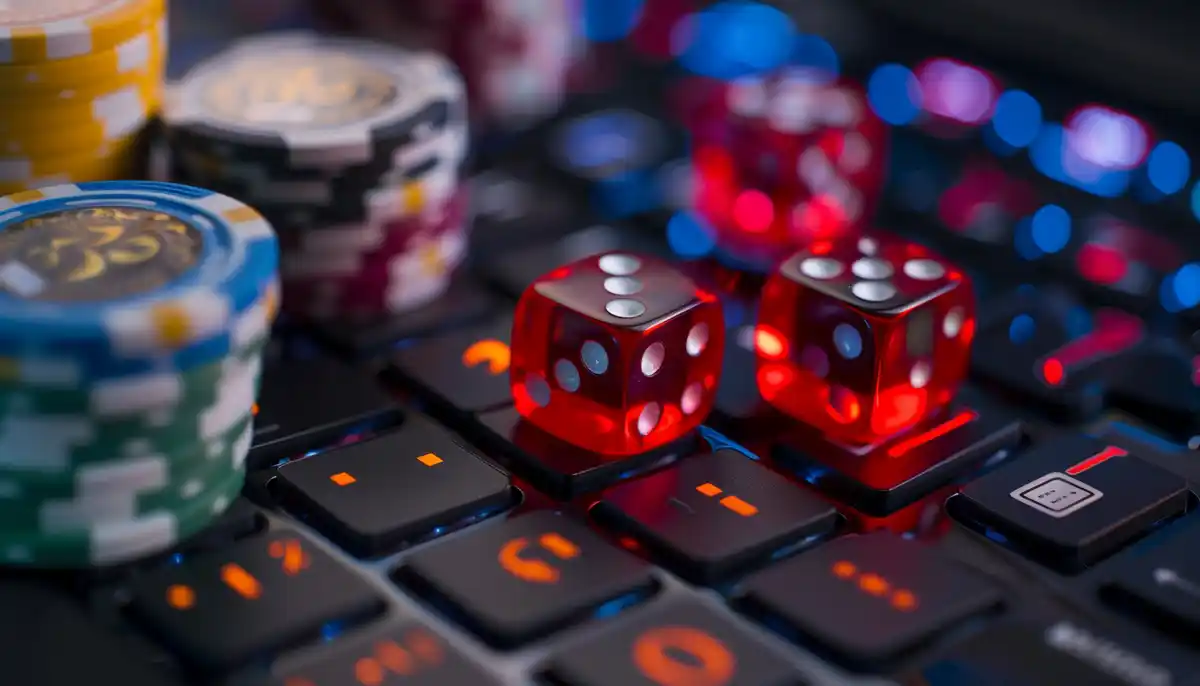
 Nick Pappas
Nick Pappas 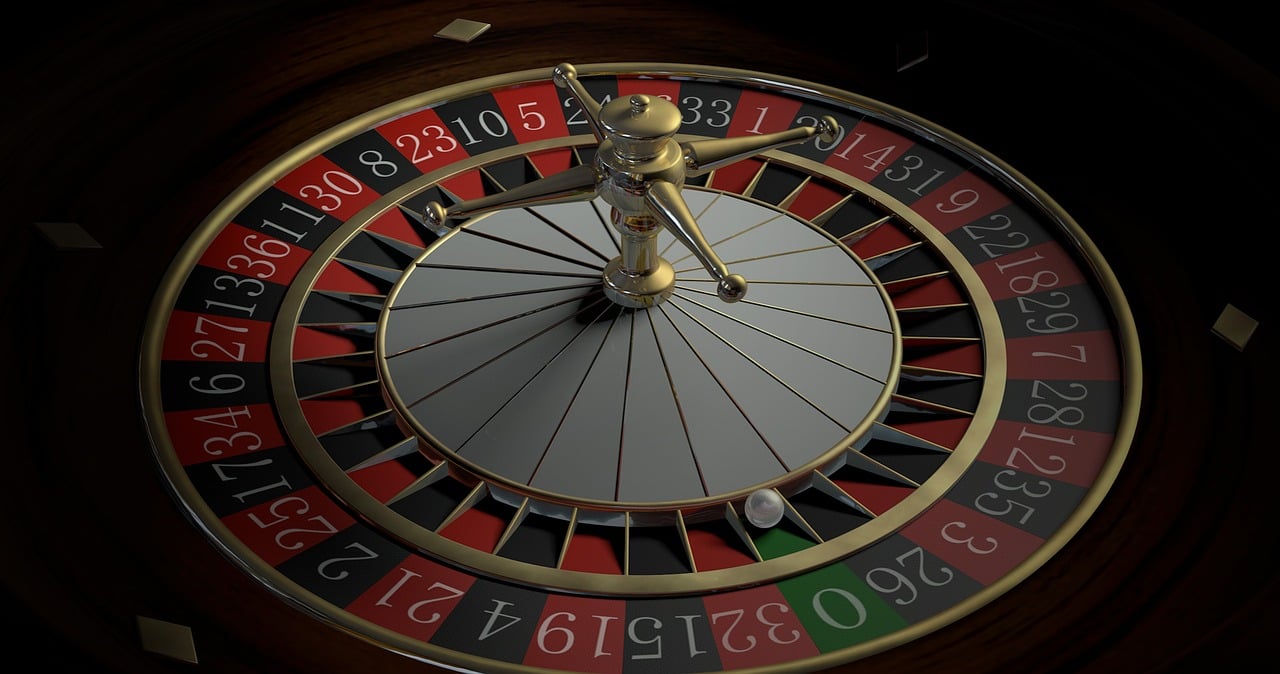
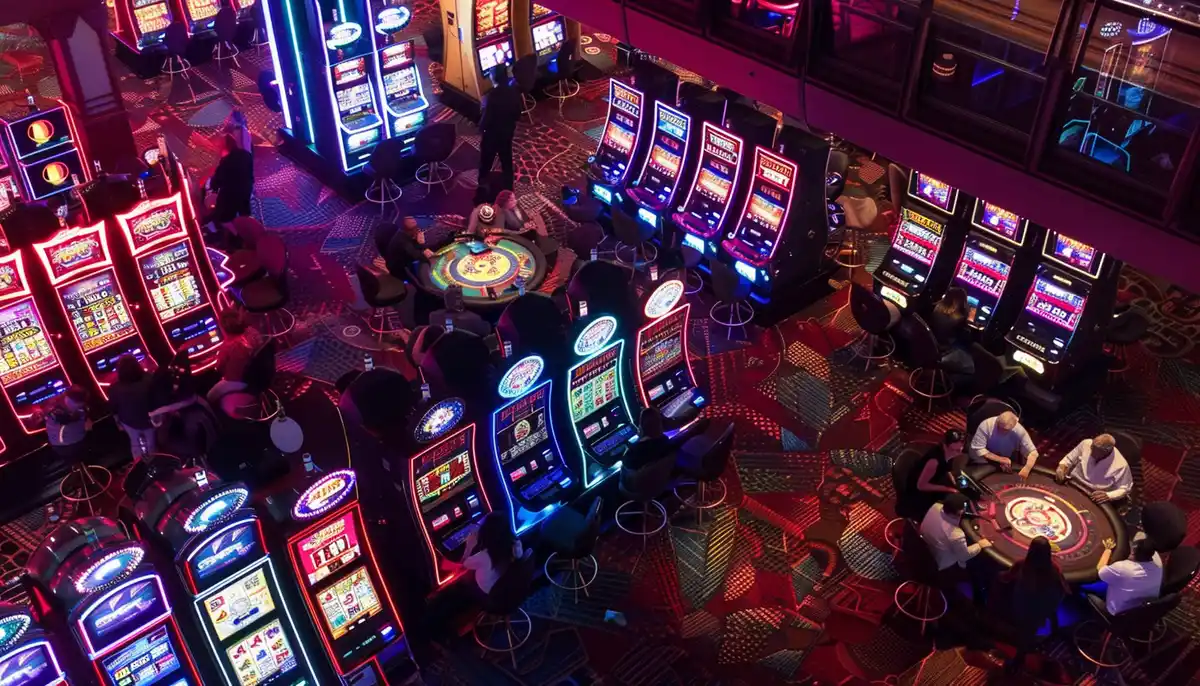

 Patrik Lidin
Patrik Lidin